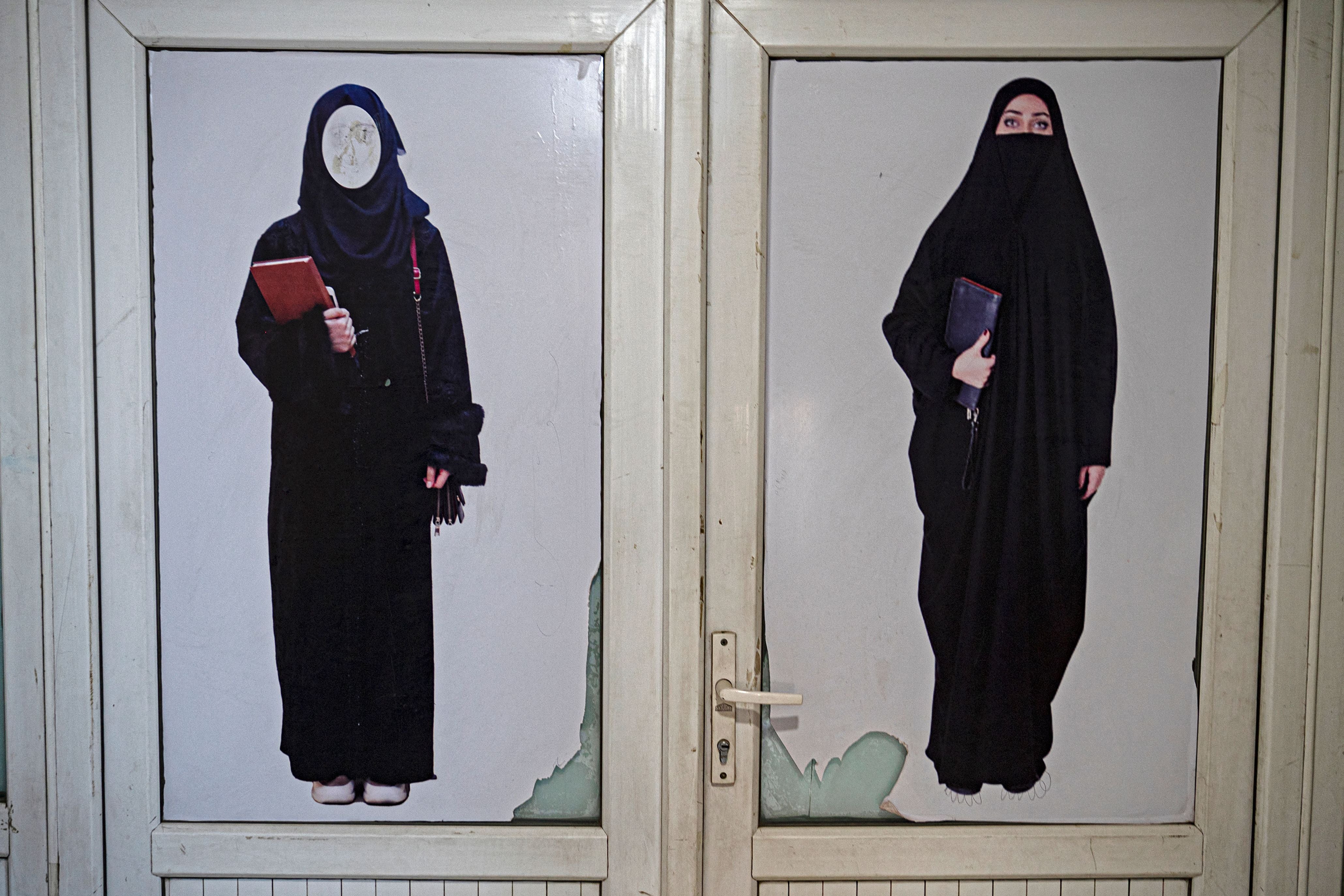New Taliban school uniform includes face coverings for all female students and teachers
Draft notification by Taliban met with backlash over plan to impose Sharia-based uniform on children

Your support helps us to tell the story
From reproductive rights to climate change to Big Tech, The Independent is on the ground when the story is developing. Whether it's investigating the financials of Elon Musk's pro-Trump PAC or producing our latest documentary, 'The A Word', which shines a light on the American women fighting for reproductive rights, we know how important it is to parse out the facts from the messaging.
At such a critical moment in US history, we need reporters on the ground. Your donation allows us to keep sending journalists to speak to both sides of the story.
The Independent is trusted by Americans across the entire political spectrum. And unlike many other quality news outlets, we choose not to lock Americans out of our reporting and analysis with paywalls. We believe quality journalism should be available to everyone, paid for by those who can afford it.
Your support makes all the difference.Afghanistan’s Taliban leaders have drafted a bill that proposes a Sharia dress code for school students, prescribing headscarves, cloaks, and long tunics and baggy pants in different colours for boys and girls.
Both male and female students will be asked to wear the traditional clothing, which covers the body, complete with a badge bearing the Taliban’s flag, reported Kabul News, citing a source from the caretaker government’s education ministry.
According to the draft, which contains five chapters and 13 articles, boys attending primary school will have to wear the traditional perahan tunban attire in light blue, while those attending secondary and high school will have to wear a light green outfit.
Female students will not be allowed to wear “short, transparent, thin and tight” outfits, reported Afghanistan news channel Amu, citing a Taliban official.
A Sharia-compliant headscarf will be included in the uniform for girls, in addition to a cloak, which the students will have to wear on their way to and from school.
According to the report, the draft stipulates that female students below sixth grade will have to wear uniform in “dark ivory” with a “white” headscarf, while older girls will be required to wear an olive-green outfit with a black headscarf.
In March 2022, the Taliban banned female students above sixth grade from attending schools.
The official is reported to have said that the Taliban are still consulting on the draft, and that they cannot describe the document circulating on social media as the final version as the Taliban are still compiling ideas and have not yet made a decision.
The draft stipulates that male school teachers will also have to don perahan tunban outfits, and that female teachers will be required to wear the women’s version of the attire, along with a full-length cloak.
The draft notice has been met with a backlash from activists, who said that students are protesting against the new uniform rules.
A citizens’ movement called Purple Saturdays said that its members were protesting because of the Taliban’s requirement that girls below sixth grade wear a uniform.
The Taliban have barred women from public spaces, including parks, and from most forms of employment, but this is not mentioned in the draft uniform document.
In a sweeping move, the Taliban also banned Afghan staffers from working with the UN last week.
The hardline Islamist regime has presented the restrictions on education for women and girls as a temporary suspension rather than a ban, but universities and schools reopened in March without their female students.
On Saturday, Afghan religious scholars criticised the ban, as a key Taliban minister warned clerics not to rebel against the government on the controversial issue.
Scholar Abdul Rahman Abid said institutions should be permitted to readmit girls and women through the introduction of separate classes, hiring female teachers, staggering timetables, and even building new facilities.





Join our commenting forum
Join thought-provoking conversations, follow other Independent readers and see their replies
Comments